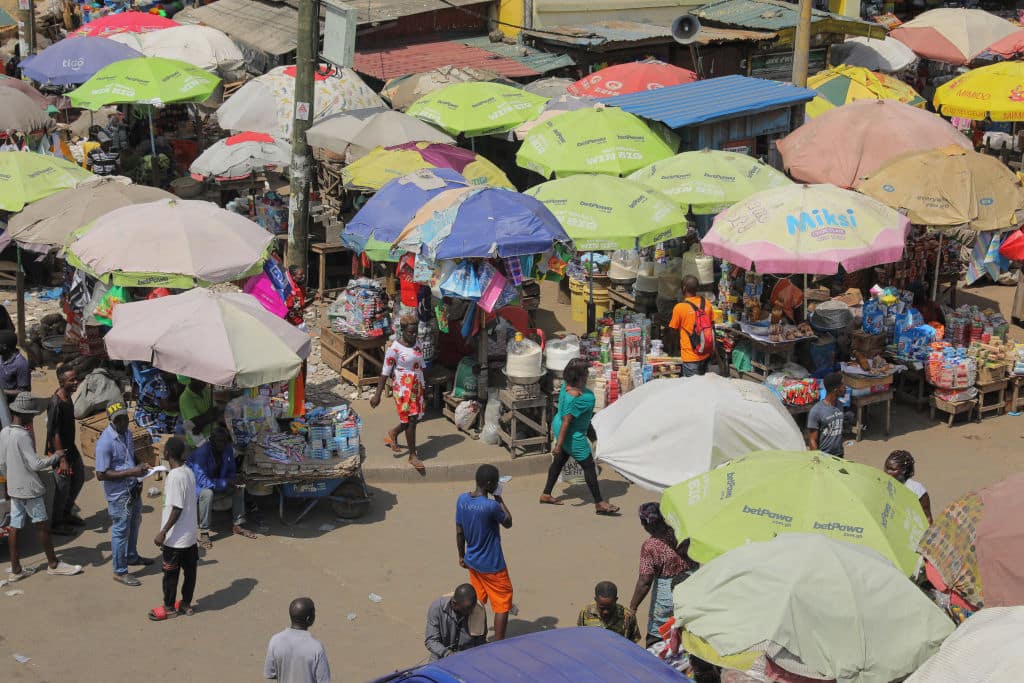Ghana has secured critical financing support for its climate adaptation and mitigation endeavors during the recently concluded 2023 International Monetary Fund (IMF)/World Bank Group (WBG) Annual Meetings. Finance minister Ken Ofori-Atta disclosed this to the Ghana News Agency.
At the forefront of this support is the World Bank’s International Finance Cooperation (IFC), pledging funding to bolster Ghana’s implementation of diverse climate change initiatives. These projects aim to fuel sustainable growth, foster a habitable planet, and generate employment opportunities.
Sharing his thoughts on this development, Ofori-Atta expressed optimism about the impact on Africa as a whole. “We have a huge seat at the table [of V20] now, and that will reflect on the whole of Africa, enabling us to design and understand where financing is going, especially in carbon credit financing,” he told the news agency.
He emphasized the positive outcomes of discussions with the World Bank and IFC, anticipating substantial resources and innovative financing schemes for climate mitigation and adaptation. “Beyond the stability that you bring with an IMF program, you need to look at growth,” he stated, underlining the focus on private investment and strengthening the system.
Highlighting the urgency of the climate agenda, Ofori-Atta pointed out its alignment with crucial sectors such as electronic vehicles and solar energy. “This aligns with the type of resources needed to make growth more effective and sustainable,” he added.
Loading...
Ghana, as the headquarters of V20 (the Vulnerable 20 Group), is poised to lead and harness new ideas and global technology to accelerate the nation’s climate change agenda. Ofori-Atta affirmed that economic growth in Ghana would prioritize addressing climate change issues, with a commitment to translating stability into sustainable job opportunities for citizens.
Speaking with FORBES AFRICA, Ghanaian social entrepreneur Prince Fiadzigbe expresses optimism and cautious enthusiasm about the development.
Fiadzigbe highlights the critical importance of utilizing the funds effectively to address the pressing challenges posed by the climate crisis. “Hoping these funds are channeled into proper use by the government and leadership in the climate space for interventions whose results would see us better adapting to the climate crisis and mitigating it as a country,” he emphasizes.
Fiadzigbe commends the international community’s commitment to supporting climate initiatives in developing nations. He stresses the need for strategic and transparent allocation of resources to ensure that the intended goals are achieved.
“Ghana has been presented with a significant opportunity to bolster its resilience against climate change impacts and contribute meaningfully to global efforts in combating environmental challenges,” Fiadzigbe remarks. He calls for collaboration between government agencies, private sectors, and non-governmental organizations to implement comprehensive and sustainable climate solutions.
The entrepreneur urges the Ghanaian leadership to prioritize projects that not only address immediate climate concerns but also foster long-term environmental sustainability. “It’s imperative that we invest in initiatives that not only mitigate the current effects of climate change but lay the foundation for a more sustainable and resilient future for generations to come,” he states.
As Ghana navigates the complex landscape of climate adaptation and mitigation, Fiadzigbe remains hopeful that the secured financing will mark a turning point in the nation’s environmental efforts. He encourages ongoing dialogue and collaboration between stakeholders to ensure a coordinated and effective response to the climate crisis.
Fiadzigbe also emphasizes the importance of ensuring that these funds are deployed effectively to benefit local communities.
“While securing financing is a crucial milestone, it’s equally important to ensure that these resources reach the grassroots level, empowering communities to adapt to climate change and participate in sustainable practices,” he notes.
Loading...
